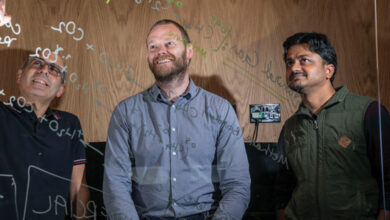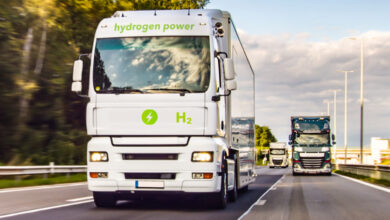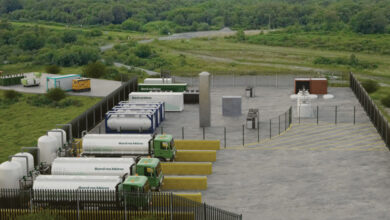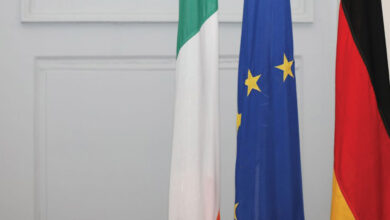‘A sustainable and longstanding hydrogen partnership between Germany and Ireland’
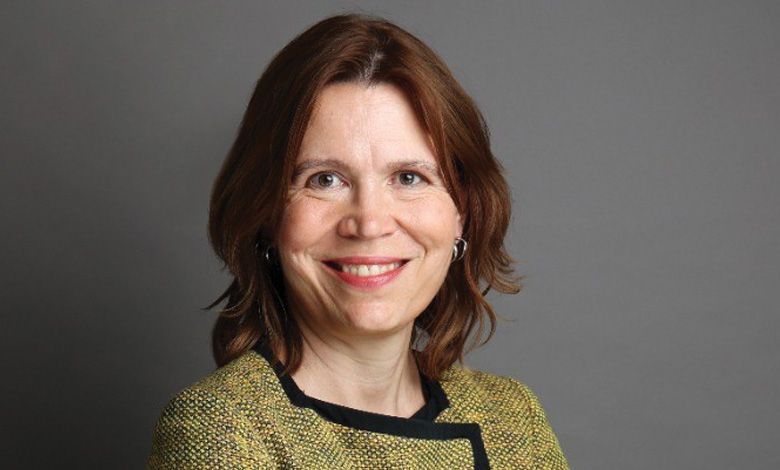
Ciarán Galway speaks with the German-Irish Chamber of Industry and Commerce’s interim Chief Executive Officer, Alexandra Voss, about developing a sustainable and longstanding hydrogen partnership between Germany and Ireland.
Ciarán Galway (CG): Currently, what are the German-Irish Chamber of Industry and Commerce’s most significant strategic priorities in relation to hydrogen?
Alexandra Voss (AV): The current strategic priority for the German-Irish Chamber of Industry and Commerce (GICC) is to position itself as information broker between Germany and Ireland.
By founding the German-Irish Hydrogen Council (GIHC) we have enabled direct communication and knowledge transfer between the members of the GIHC as well as stakeholders of the German and Irish hydrogen industry.
We work to nurture mutual development and cooperation. Additionally, we support decision-makers on policy regarding the trajectory of the hydrogen journey in Ireland.
A key aspect of this is demonstrating that Germany can become a significant off-taker for green hydrogen produced in Ireland due to the need to decarbonise the German economy.
To demonstrate this, we are developing a feasibility study outlining the route to the German market for green hydrogen produced in Ireland. We aim to have this study available by the end of 2024 for use by the industry in Germany and Ireland as their initial roadmap for trade, collaboration, and discussion.
CG: What opportunities are there for German companies to assist in scaling the hydrogen industry in Ireland?
AV: Over the last few years, the German industry has prioritised sustainability, with hydrogen being a key means to decarbonise various sectors. Germany has developed innovative solutions for the effective production, transport, and utilisation of green hydrogen, with adaptability and compatibility at the forefront of this development.
German companies are eager to share their expertise, products, and solutions with Irish partners, potentially addressing scaling challenges faced by local communities and industries in Ireland. Additionally, Germany has invested significantly in technology needed to scale up green hydrogen production through wind energy. As such, German expertise and technology can be a driver needed to accelerate the development of on and offshore wind generation in Ireland
CG: What are the opportunities unlocked by the Joint Declaration of Intent (JDI) on cooperation in the field of green hydrogen between the Irish Department of the Environment, Climate and Communications and the German Federal Research Ministry?
AV: The Joint Declaration of Intent (JDI) between the Irish Department of the Environment, Climate and Communications and the German Federal Ministry for Research and Education aims to stimulate bilateral research initiatives and research projects to do with green hydrogen.
It will enable Irish companies to partner with German organisations on research projects, potentially reducing research costs for Irish businesses and providing access to a large pool of researchers and research institutions.
“Ultimately, fostering relationships and enabling bilateral exchange and discourse is key for developing a sustainable and longstanding hydrogen partnership between Germany and Ireland.”
Alexandra Voss, interim Chief Executive Officer, German-Irish Chamber of Industry and Commerce
For German institutions, it enables research in areas where expertise and research opportunities may have been limited. Overall, this collaboration is expected to benefit both Irish and German hydrogen research efforts. Something we are already seeing in the early stages of the first joint projects between Irish and German organisations.
CG: What role did the German-Irish Hydrogen Council/German-Irish Chamber of Industry and Commerce play in enabling this process?
AV: The German-Irish Chamber of Industry and Commerce played a pivotal role in enabling the Joint Declaration of Intent. The Chamber leveraged its extensive contacts in German industry and political stakeholders, as well as its Irish network, to draft and sign the declaration. This document marks the first of its kind between Germany and Ireland on a hydrogen-related topic and will be the foundation for further agreements fuelling collaboration and the mutual development of hydrogen infrastructure in both countries.
CG: How can technology partnerships with German industry expedite the hydrogen export opportunity for Ireland?
AV: Technology partnerships with German industry are crucial for aligning efforts between Germany and Ireland in the hydrogen sector. To expedite the hydrogen export opportunity for Ireland, clear information is needed from these partnerships. Specifically, Germany’s demand and offtake capacity for green hydrogen produced in Ireland over the years to come.
This, coupled with a clear route to market, and comprehensive pricing strategies, will provide Irish developers with the confidence to invest in hydrogen infrastructure beyond domestic demand, knowing there is long-term demand from an important EU partner such as Germany.
CG: How can the mutual benefits of this cooperation be realised in the short-to-medium-term?
AV: In the short term, it is essential to reassure Irish developers of Germany’s interest in green hydrogen produced in Ireland, while also informing German off-takers of the potential supply from Ireland. Discussions, meetings, and constant exchange between German and Irish partners is crucial, which is part of the German-Irish Chamber of Industry and Commerce’s raison d’être.
In the medium term, purchase obligations and commitments are necessary to instil confidence for effective project development. Ultimately, fostering relationships and enabling bilateral exchange and discourse is key for developing a sustainable and longstanding hydrogen partnership between Germany and Ireland.


